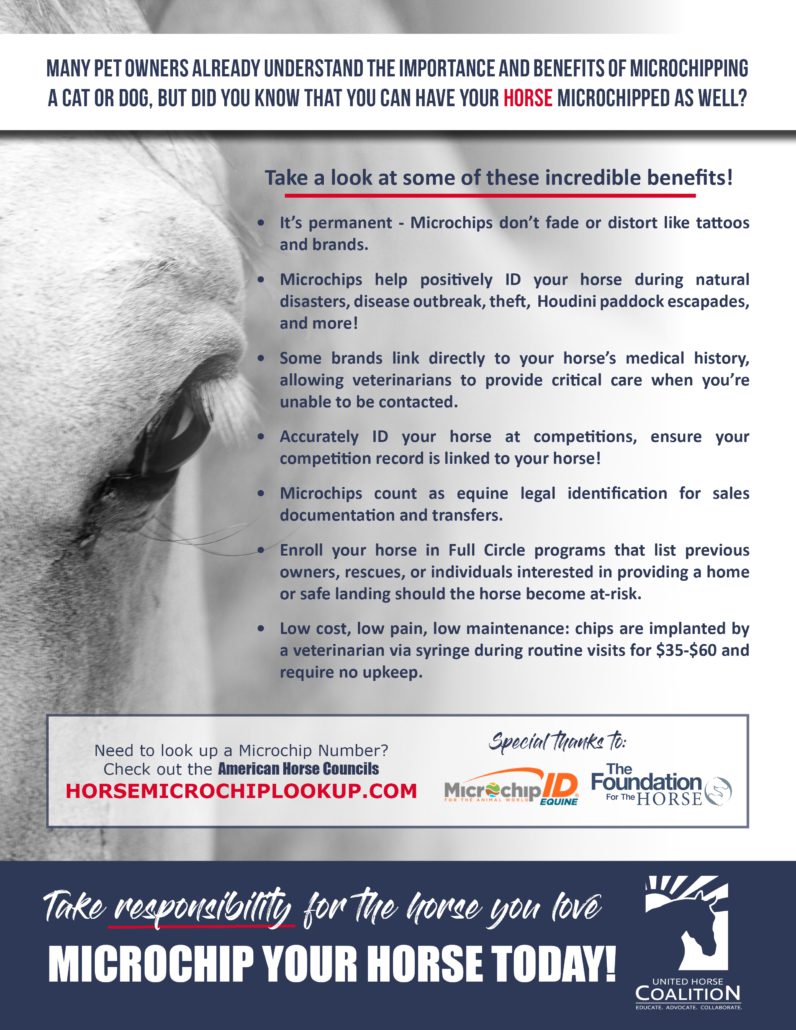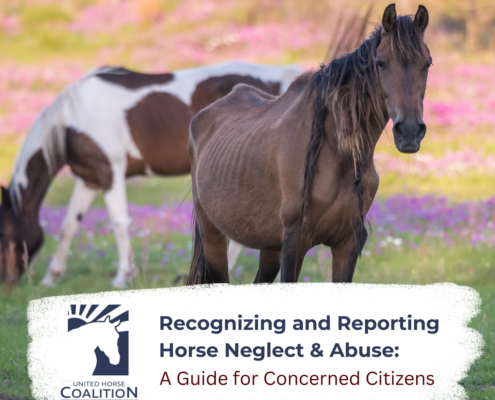Many pet owners understand the importance of microchipping a cat or dog, but did you know that you can microchip your horse?
Take a look at some of these incredible benefits!
- It’s permanent – Microchips don’t fade or distort like tattoos and brands.
- Microchips help positively ID your horse during natural disasters, disease outbreaks, theft, Houdini paddock escapades, and more!
- Some brands link directly to your horse’s medical history, allowing veterinarians to provide critical care when you’re unable to be contacted.
- Accurately ID your horse at competitions, ensure your competition record is linked to your horse!
- Microchips count as equine legal identification for sales documentation and transfers.
- Enroll your horse in Full Circle programs that list previous owners, rescues, or individuals interested in providing a home or safe landing should the horse become at-risk.
- Low cost, low pain, low maintenance: chips are implanted by a veterinarian via syringe during routine visits for $35-$60 and require no upkeep. Since microchips last at least 25 years, this one-time fee should be valid for the life of the horse.
Additional facts:
- Microchips are difficult to remove. This makes it difficult for criminals to remove a microchip and provides for simpler identification of a missing or stolen horse.
- Magnets will not deactivate the chip. Microchips are read-only and provide only the animal’s identification number. No additional information about the horse is stored on the microchip, and they do not have a power supply.
- According to a study published in the Journal of the American Veterinary Medical Association, microchips implanted in the nuchal ligament do not migrate.
- Extensive studies both here and in England over the last 20 years have demonstrated that microchips do not cause cancer.
- Microchips are read-only and do not contain a GPS.
- Starting in January 2017, the Jockey Club requires all Thoroughbred foals be microchipped. Beginning December 1, 2017, all horses competing in U.S. Equestrian Federation-licensed and/or U.S. Hunter Jumper Association-sanctioned competitions with hunter-jumper seat equitation classes must be microchipped.
For more information please visit the American Association of Equine Practitioners “Chip Your Horse“










